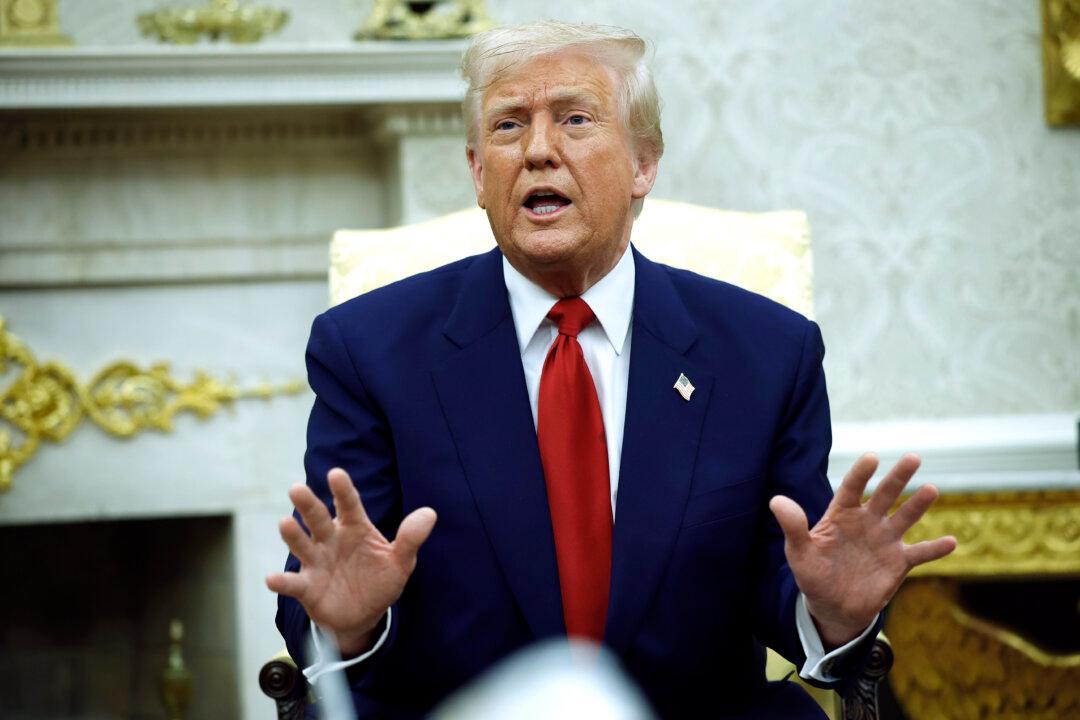U.S. President Donald Trump said late on April 7 that the European Union would need to buy $350 billion worth of American energy to secure relief from tariffs.
Trump was responding to European Commission President Ursula von der Leyen, who said earlier on Monday during a news conference in Brussels that the EU was ready to negotiate a “zero-for-zero” tariff pact on industrial goods.





